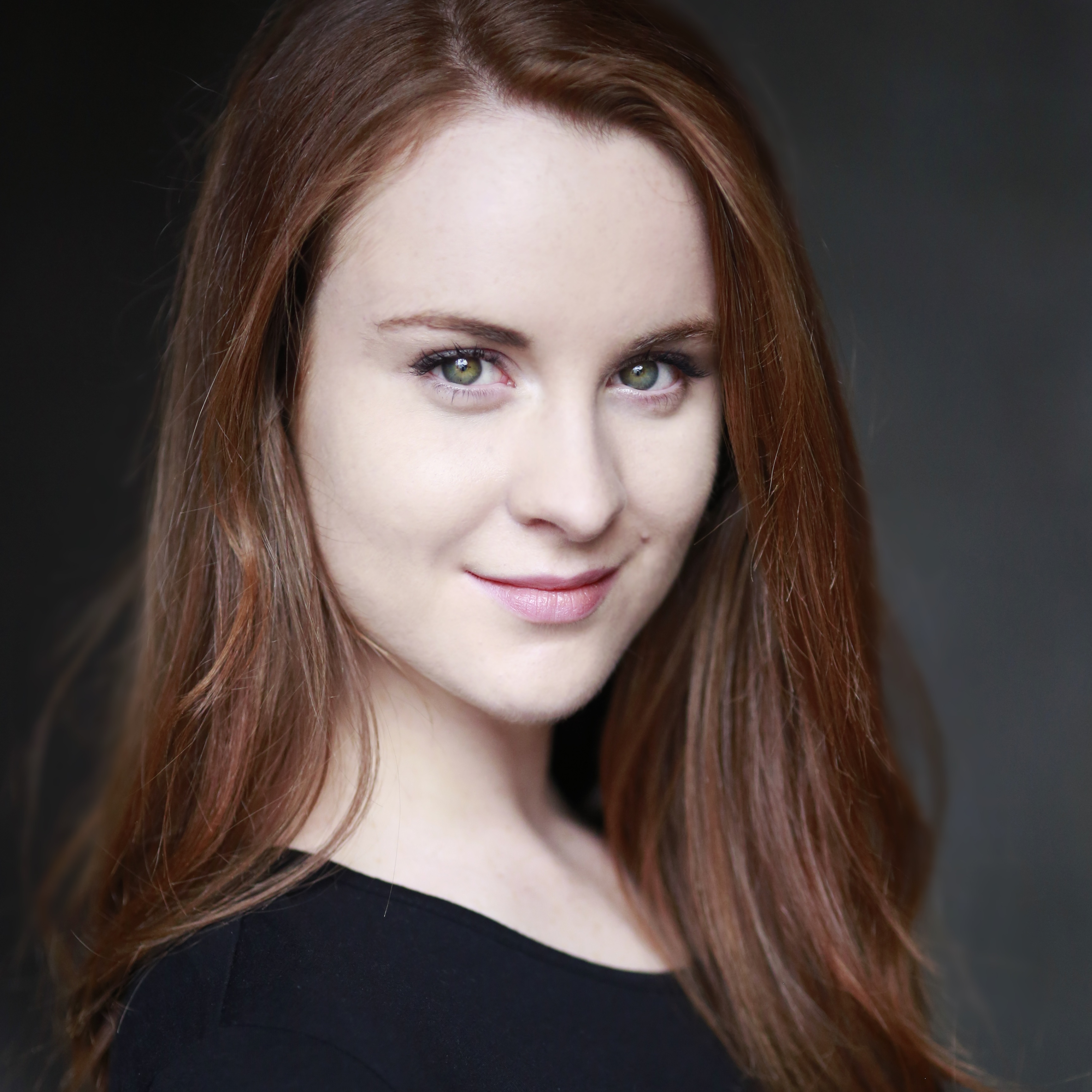In pursuit of Nancy: Outrageous star Bessie Carter on bringing the Mitford family to life
The scion of acting royalty Imelda Staunton and Jim Carter reveals why she loved playing Nancy Mitford on screen and what it feels like to act opposite her mother on the stage.
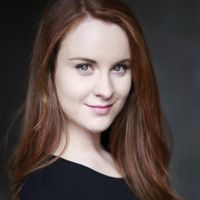
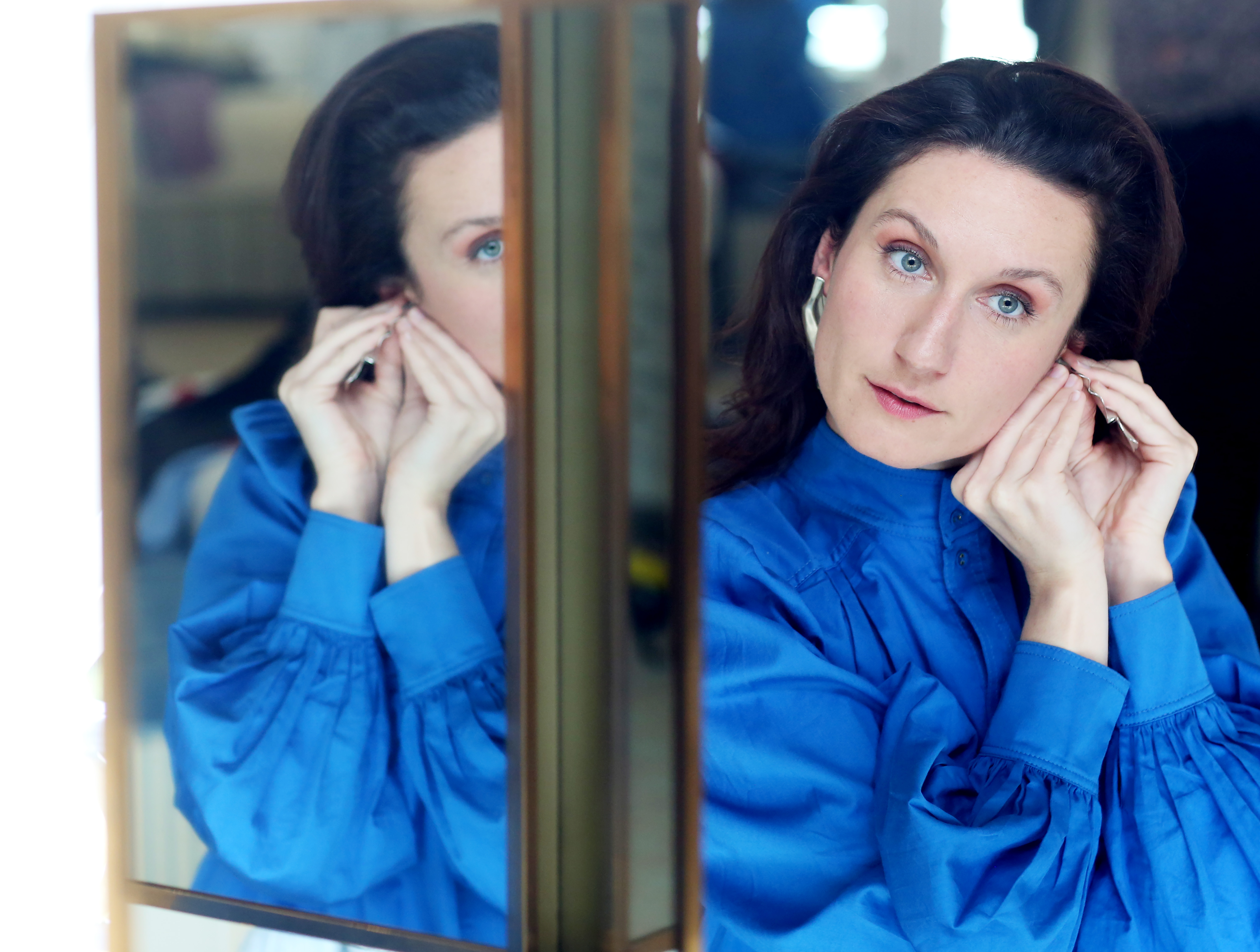
It's a Monday afternoon and I'm sitting in a gilded chair in a deluxe suite at The Ritz ready to chat with Bessie Carter about her turn as Nancy in UKTV's new series about the infamous Mitford sisters, Outrageous. Stepping into the shoes of the cherished author may be her first time leading a series, but she's hardly an industry newcomer — over the past decade or so, she's been quietly building up an impressive CV with roles in Cranford, Howards End, I Hate Suzie, and, perhaps her most recognisable credit to date, Bridgerton. Oh and she's also daughter of acting royalty Imelda Staunton and Jim Carter. Nevertheless, Carter seems to be just as bemused by the elaborate surroundings as I am. 'Oh, this is so Ritz!' she exclaims gleefully as a silver tea set is laid out before her. She even asks for a quick snap of herself holding up a teacup in her bathrobe and hair curlers.
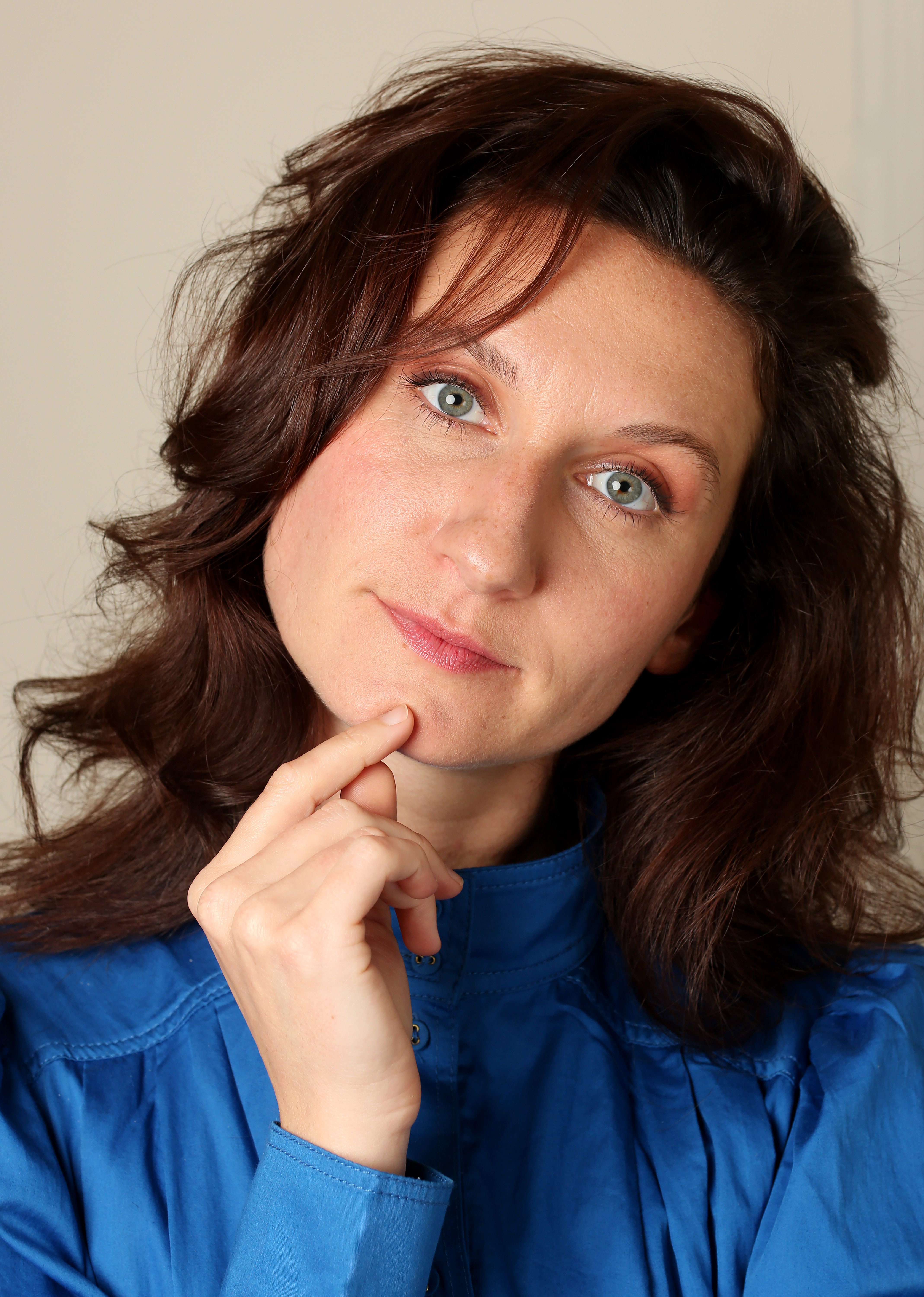
The hotel may be something of a novelty to Carter — but to Nancy Mitford, it was practically a home away from home. One of London's Bright Young Things, Nancy came from an aristocratic family and spent the inter-war period hobnobbing with the city's literary elite. Her friend Evelyn Waugh — with whom she frequently took tea at The Ritz — encouraged her to write her first novel, Highland Fling, published in 1931. This is the Nancy we meet in Outrageous — a feather boa slung over her shoulder, a martini in one hand, a cigarette holder in the other, and that deft wit sparkling in her eye.
The eldest of six siblings — five girls and a boy — Nancy was the writer of the family. As it would turn out, she was also one of the most moderate. In the lead-up to the Second World War, her younger sisters each found themselves on almost incomprehensibly divergent paths, which provided loose inspiration for Nancy’s two most beloved novels, The Pursuit of Love (1945) and its follow-up, Love in a Cold Climate (1949). 'These women dared to test the limits,' says Carter. 'To test the boundaries, and see how far they could go — with devastating consequences in some cases.'
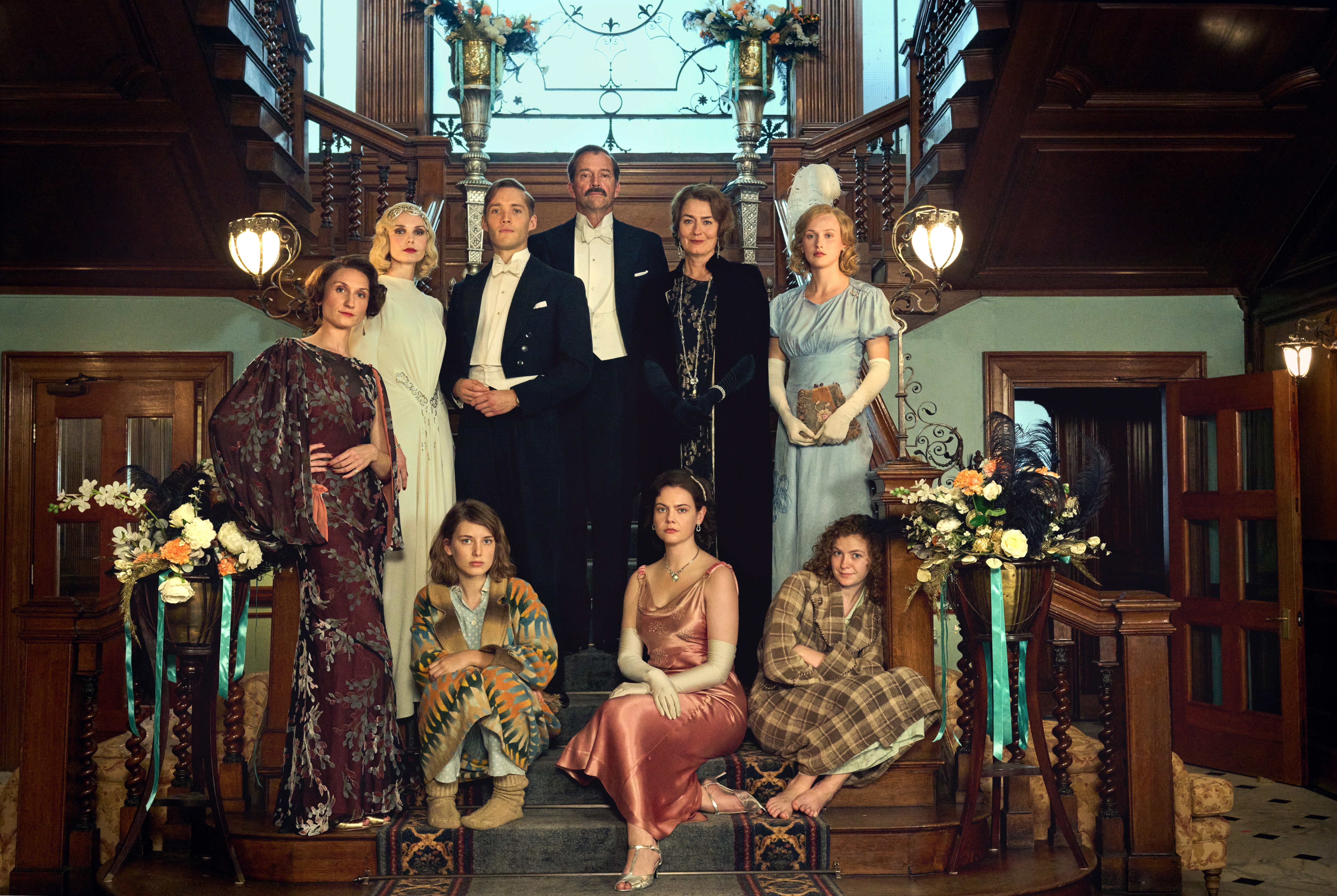
Standing left to right: Bessie Carter as Nancy Mitford, Joanna Vanderham as Diana Mitford, Toby Regbo as Tom Mitford, James Purefoy as Farve, Anna Chancellor as Muv, Shannon Watson as Unity Mitford; seated left to right: Zoe Brough as Jessica Mitford, Isobel Jesper Jones as Pam Mitford and Orla Hill as Debo Mitford.
Pamela preferred a rural life surrounded by dogs and horses. Diana left her first husband for Oswald Mosley, who, in 1932, founded the British Union of Fascists. Unity became obsessed with Adolf Hitler and wrote a notorious letter to The Times that saddled her with the label of 'Britain's most hated woman'. Meanwhile, Jessica found herself drawn to the opposite end of the political spectrum and eventually joined the Communist Party USA. Finally, there was Deborah, the only sister to embrace the patriarchal expectations placed upon her — she married the then Lord Andrew Cavendish in 1941 and settled into the life of an aristocratic wife. 'It's almost too unbelievable to be believed,' Carter says. 'To quote the show, it is outrageous!'
The series is interested in understanding how such an outrageous family came to be. How did the sisters — who shared bedrooms and secret languages — find themselves on such differing trajectories? The cracks begin to show in 1931, the pressure cooker year, as Nancy calls it, and the one in which the series starts. The Mitford family is feeling financial pressures from the reverberations of the 1929 crash. Meanwhile, the first rumblings of political unrest hint at the Second World War to come. 'It was a really fragile time — it was a wild time where the old forms were crumbling. And in march, these rebellious, headstrong women.'
Their mother, or 'Muv,' (Anna Chancellor), is desperate to marry them off — but the idea of these young women settling down seems unlikely. When we meet them, they are practically uncontrollable, all vivacity, passion, sharpness, ambition — and with nowhere to direct their energy. 'They were completely wild. And I think it came from being bloody bored, because they were trapped in this crumbling estate in the countryside with little to no money. They weren't allowed to be educated, so all they had was time on their hands.'
Carter was looking for anything but a period drama when she got the audition for Nancy: 'I did say after filming series three of Bridgeton that I'd never do a period drama again,' she laughs, but she found herself irresistibly drawn to Sarah Williams' script. And despite having all the outward markings of a traditional period drama, Outrageous tells the almost unbelievable Mitford saga with a sort of frenetic, contemporary energy. It was something that Carter immediately latched onto in the script. 'It felt fast paced, punky, youthful, energetic,' she recalls. 'And it's filmed in a very fast-paced, jazzy, boho style, which I really liked.'
Exquisite houses, the beauty of Nature, and how to get the most from your life, straight to your inbox.
There is a certain modern bohemian charm to the Mitfords and although Carter herself may not have absolutely everything in common with the brash, party-loving 1930s debutante she portrays, this bohemian, literary London is something she is undoubtedly familiar with — albeit in a more modern context.
After all, she was born into one of London's most beloved artistic families. Carter's parents Imelda Staunton (The Crown, Harry Potter) and Jim Carter (Downton Abbey) met in the '80s while co-starring in a production of Guys and Dolls at the National Theatre. Carter, born in 1993, was raised among London's thespian elite. Family friends included Emma Thompson, Hugh Laurie, Stephen Fry, Jim Broadbent. With such a background, it’s no wonder she fell into acting herself. Her parents initially thought she might be better suited to directing — as a child, she had been rather bossy about a production of The Nutcracker — but acting was 'always the thing I enjoyed the most'. Soon enough, she found herself happily riding the traditional conveyor belt for young actors in London: 'Stagecoach, RADA youth company, NYT, all of the school plays.' Once, she played Henry VIII in what sounds like an ambitious school production — her mother casually borrowed a beard prop from the National's costume archives. Yet, acting was never a conscious decision. 'I just did all of that because it was fun. And I like following fun.'
The first time she was confronted with the reality of entering an industry where her parents were 'famous' was during her audition for RADA, the drama school her mother had once attended. While sitting in the hallway before the audition, she looked up and found herself face-to-face with Staunton's portrait. Two thoughts ran through her head: 'Oh, f**k,' and 'Why?' She didn't get in and instead ended up at Guildhall — 'which was, I think, meant to be, because they had no idea who my parents were.'
After graduating, Carter played Evie, the athletic, practical daughter of Matthew Macfadyen's Henry Wilcox in BBC's adaptation of E. M. Forster's Howards End, Violet in ITV's 1795 East India Company drama Beecham House, Poppy, Billie Piper's lawyer, in dark comedy I Hate Suzie. Since 2020, she has also starred in Bridgerton as Prudence Featherington, the snooty, but somewhat artless older sister to Nicola Coughlan's Penelope. As well as appearing on screen, Carter has followed in her parents' footsteps by treading the boards at the Old Vic and the National Theatre. Outrageous is her first time carrying a show — and I sense that she is especially happy to be doing so in Nancy's shoes. 'She is obviously close to my age, but she was also a bit of a hopeless romantic. She was creative. She wrote. She was, I think, quite poetic. She was funny.'
Yet, the connections between the two go further — and stranger. In a bizarre twist of fate, Carter went to the same school at Nancy and was born in the same hospital the author worked at during the war. She lived just down the road from where Nancy had once lived in North London and five years ago, she narrated the audiobook of The Pursuit of Love. 'I knew a weird amount about her [before joining the cast]. It was a very serendipitous job for me.'
Before filming began, Carter and the cast took part in what she happily recalls as 'Mitford boot camp'. They learned 1930s dances, etiquette, and dialect — 'so that they all sounded like they were from the same family'. This was followed by rehearsals — a rare luxury with television. By the time the cameras started rolling, the cast fell into their roles as if they'd been sisters forever. 'We'd all read all the books, we'd all done the work. We all knew who would be friends with who, or who would kick who under the table.'
Filming took place in Oxfordshire and Hertfordshire last summer. 'We were filming over a summer in these big, lovely houses — a lot of amazing country houses — really authentic to the types of houses the Mitfords would have lived in.’ Yet, Outrageous is as unflinchingly modern as it is historically accurate. It feels almost too familiar — radical swings to extremes within families, extremes of opinion, fear-driven political convictions — or, as Carter puts it, 'shockingly relevant.' Of course, she goes on, at the time, they didn't know where these paths were leading. ‘They were just hoping for stability, for a government who would get them out of the economic crisis that the First World War left them in. I suppose why we make shows like this is to investigate, why do these things happen?'
Ultimately, though, Carter sees Outrageous as a love story — between siblings. ‘Yes, there are men who come and go, but it's fundamentally a story about these six sisters and how far will you go to stay connected to a family member? How far does one have to go before a family tie is broken?'
Speaking of family ties, Carter is currently working on another project where bonds are stretched and tested. And this time, she's doing it with a real family member. In the West End revival of George Bernard Shaw's 1902 Mrs. Warren's Profession, Carter plays Vive Warren opposite Staunton, who plays the titular Mrs. Warren.
'It's really nice to work with my mum. It just feels very natural. We just become two actors talking about characters.'
Vivie is the polar opposite of Nancy Mitford. ‘She came third in the mathematical Tripos, which means she's nothing short of a genius. She doesn't care for beauty or romance, is incredibly hard-edged, thinks she sort of knows everything. She gets a tough awakening as the piece goes on.' This comes in the form of some uncomfortable truths about how her wealthy mother made her fortune. It makes for a 'tough relationship' between mother and daughter — and a tough bit of acting work for Carter and Staunton. 'Obviously, doing it with your real mother and having to really emotionally dare to really mean it and listen and receive it is quite, quite scary.'
Like Outrageous, Mrs. Warren's Profession sees Carter in one of her most demanding roles to date. 'George Bernard Shaw is a beast when it comes to muscularity and length of thought and sustaining arguments for long periods of time. I think our modern tongue and our modern brains are much more bite-sized nowadays.' The play also challenges the period drama traditions. 'We're leaning into the punchy modern undertones. It's fresh. A bit like Outrageous. We're not doing the dusty period drama version. It's bitey.' The material calls for it. 'It's looking at things that we're still not really talking about: wealth distribution, misogyny and capitalism. It was written 130 years ago and it's still completely relevant.'
There’s certainly a throughline in Carter's work so far. For an actor who is eager to move away from the genre, she has a knack for finding period dramas, but ones that break the mould by lending a distinctly modern feminist slant to the material. Even light, frothy Bridgerton contains, upon closer inspection, surprising depth and a thrumming feminist heartbeat. It's 'looking at women's role just being on the marriage market and looking at… wanting something more, or wanting a love match, rather than just a societally pleasing match.’
Outrageous, too, is ultimately about what happens when women want more — and the consequences when they aren't allowed to have it. 'Nancy has to grow up and has to take a stance, which I think is what we all have to do now. She really was the glue that held all of the sisters together — or tried to hold them all together, despite all of their differing views. I think where Nancy ends up harkens back to that female empowerment theme — without sounding too Spice Girls.'
What is next for her? 'My dream is to do a play, a bit of television, then another play. I love both worlds.' She's also begun producing and, as her parents once predicted, directing. 'I've got three different projects in development at different stages. We went to Cannes with a feature that we're making, and then there's a TV series and development — yeah, I'm really organised!' She is also hoping to finally sink her teeth into something a little more contemporary: 'I would love a little bit of sci-fi, you know?’ But first, there may very well be more petticoats and corsets on the table. Bridgerton will seemingly go on for years to come. And, of course, she is 'desperately keen' for series two of Outrageous, the 'crème de la crème of period dramas'. Our conversation draws to a close and Carter happily darts off for the photoshoot. I hear her ask for something 'not too regal' and 'a bit more punky.'
I can't help but think that Nancy Mitford would approve.
Photographer: Clara Molden
Hair and make-up: Lou Blake
Location: The Ritz London
Outrageous is available on U and U&DRAMA from June 19
Meg is a culture writer based in London. She has written for publications that include Glamour, Stylist, InStyle, The Guardian, Vulture, Daily Beast, i-D, Little White Lies, the i, and Marie Claire. She has also appeared as a guest on a number of podcasts including Truth & Movies: a Little White Lies Podcast and Flixwatcher. Last year, her work was included in the essay anthology Isn't She Great.
